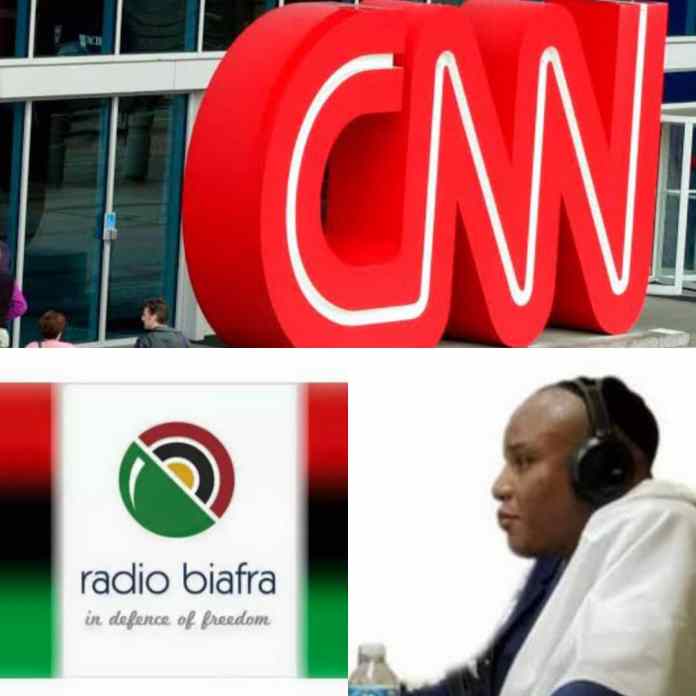Radio Biafra Location Discovered in South-East London

The location of Radio Biafra used by the Indigenous People of Biafra (IPOB) to propagate its campaign for self-determination of the people of the South-East in Nigeria has been discovered in a suburban area of South-East London, United Kingdom.
According to the Cable News Network (CNN), Radio Biafra, a network of internet-based amateur radio stations, broadcasting separatist agenda to its listeners in Nigeria, is tucked down a quiet, leafy street in Peckham, South-East London. Radio Biafra is operated by Nnamdi Kanu, a British citizen, leading the calls to revive the former Republic of Biafra through IPOB, an organisation he personally established.
The group was banned by the Federal Government of Nigeria in 2017, and Kanu has been arrested several times on charges of treason and instigating violence. He was first arrested in October 2015 for treasonable felony, among other charges. He was released on bail in 2017 and fled to the United Kingdom.
Before his most recent arrest in Kenya in June, Kanu’s supporters used the Peckham house for Radio Biafra broadcasts, according to Darlington Imoh, who answered the door when CNN visited in August.
He described himself as the “officer of output for the Biafran campaign.” The International Crisis Group, an organisation working to prevent war, described Radio Biafra in 2015 as “an unlicensed station urging violent struggle to achieve independence for Biafra” with broadcasts that are “highly provocative messages laced with misinformation, hate speech, and anti-Nigeria derision.”
However, Imoh contended that all IPOB is calling for is the right to self-determination, which he compared to the devolution votes held in Scotland and Wales in 1997, and more recently, Brexit.
“We want a referendum, which is a civilised thing to ask for, just like Britain had with Europe,” he stated. But analysts say that is very unlikely to happen.
“The Nigerian government will be afraid to allow a referendum to happen. And the fact that it will be afraid to allow a referendum to happen shows just how deep the problem is,” says Remi Adekoya, a political analyst and associate lecturer at the University of York in the UK.
It will be recalled that movement for Biafran independence from Nigeria in the 1960s led to a bloody civil war.
In 1966, a coup by army officers, mostly from the Igbo tribe, toppled the Nigerian government. Six months later, there was another coup, and riots in the mostly Hausa north, left thousands of Igbo dead.
About a million Igbo, mostly Christian, fled to the country’s South-East district, which unilaterally seceded from Nigeria in 1967 and declared itself Biafra. The government declared war and more than one million people are estimated to have died in the fighting or of starvation as a result of the conflict.
The war ended in 1970 after Biafran soldiers surrendered and were reintegrated back into Nigeria under its “no victor, no vanquished,” policy. Now, the agitation for separation is back again and it is not only the IPOB calling for independence from Nigeria.
Another group, led by Sunday Adeyemo, also known as Sunday Igboho, is calling for the South-West of the country — largely populated with the Yoruba tribe — to break away. Igboho fled the country in July after a raid by security forces on his home.
He was detained in the neighbouring country of Benin Republic and is awaiting trial.
On what is driving these calls to break apart Africa’s most populous nation, political experts submitted that Kanu, Igboho and others like them are filling a vacuum left by multiple failures of government.
“The increasing popularity of these calls is a direct consequence of the failures of the Nigerian state, or, more broadly speaking, even of the Nigerian project,” said Adekoya, the University of York associate professor.


